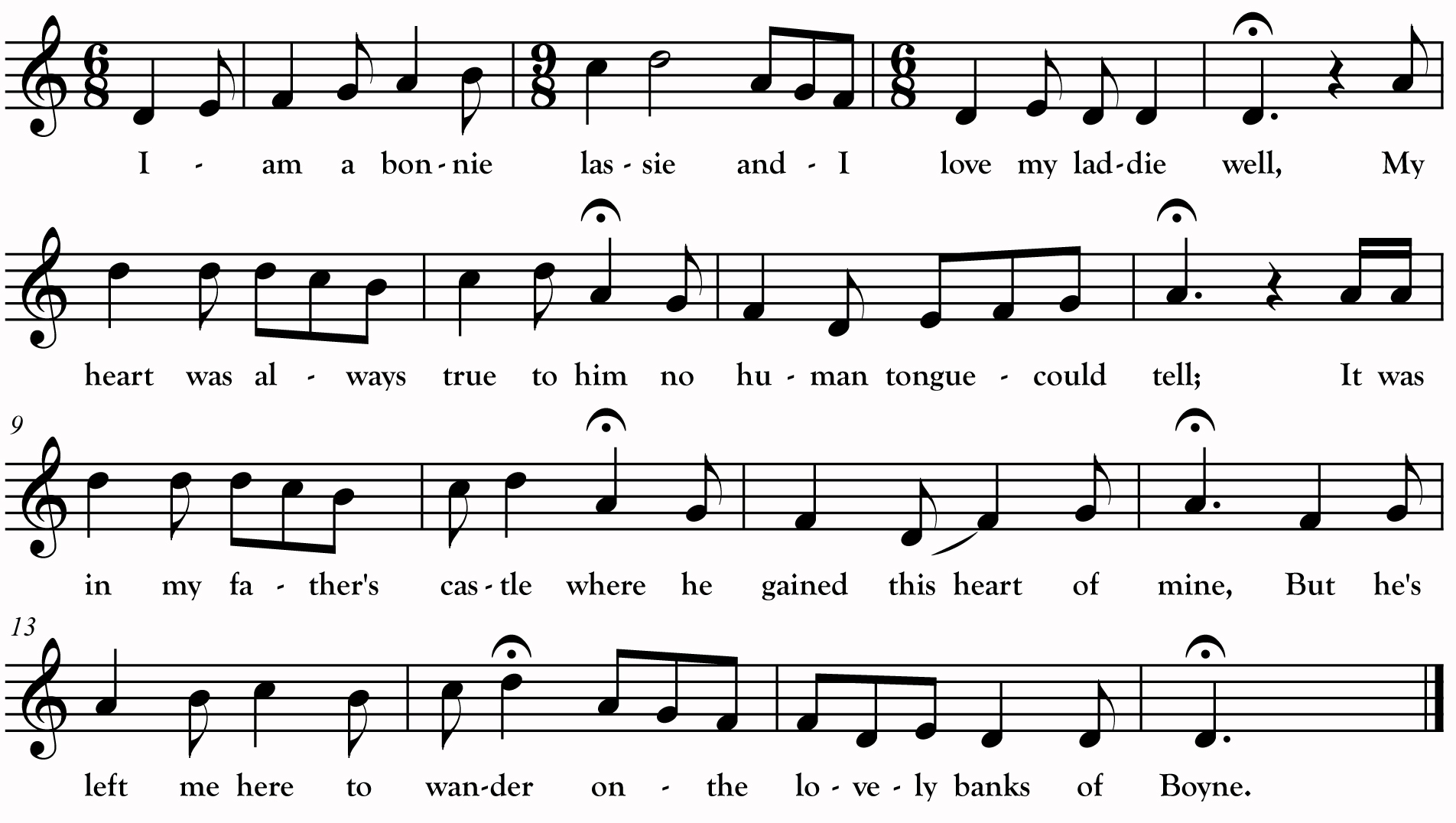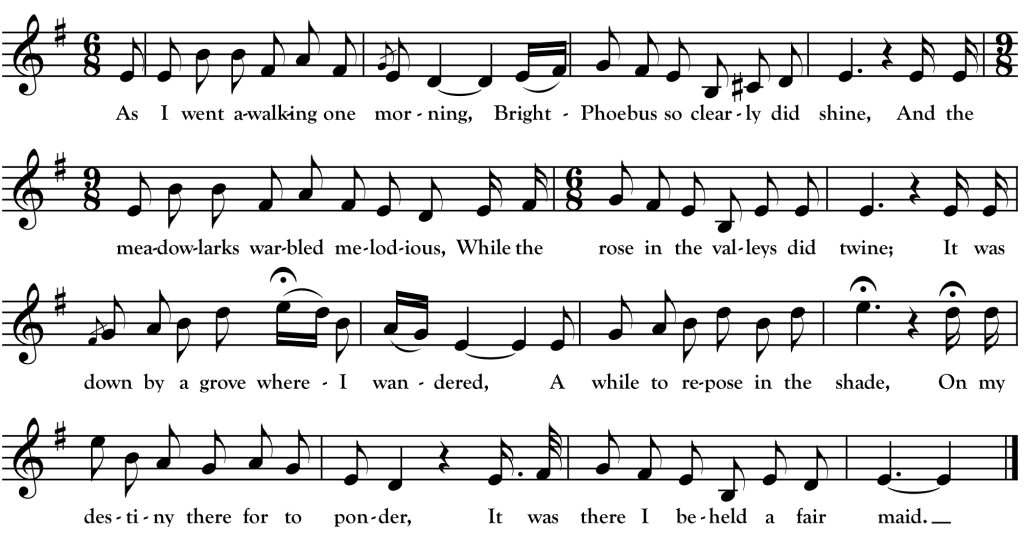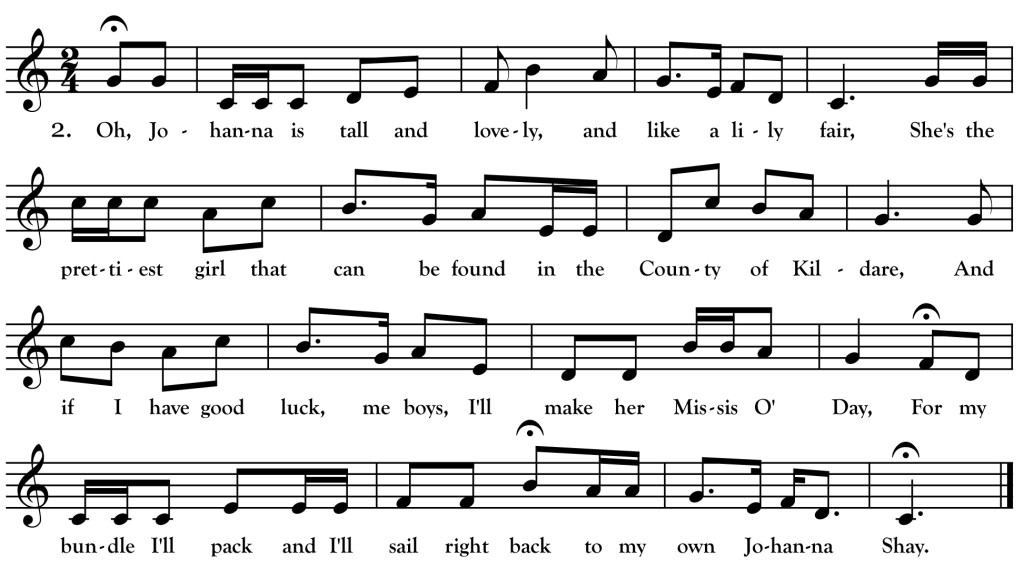The Banks of Boyne (Laws P22)
I am a bonnie lassie and I love my laddie well,
My heart was always true to him for more than time can tell;
It was in my father’s castle where he gained this heart of mine,
But he has left me here to wander on the lovely banks of Boyne.
His coal black hair in ringlets hung, his cheeks were like the rose,
His teeth were like the ivory white, his eyes were black as Sloes,
His countenance it was sincere, his speech was bold but kind,
But he has left me here to wander on the lovely banks of Boyne.
I understand my false young man to England sailed away,
I picked up all my jewels, all on that very day,
I left my aged parents, they now in sorrow pine,
I forsook my father’s castle on the lovely banks of Boyne.
No more down by those purling streams that swiftly glide away,
Where me and my true lover for pleasure used to stray;
Come, all you pretty fair maids, mind how you spend your time,
Just think of the fate of Flora from the lovely banks of Boyne.
______________________________________________________
We return to the repertoire of Minnesota singer Michael Cassius Dean this month. As in previous months, the above melody is my own transcription of Dean’s singing on a 1924 wax cylinder recorded by Robert Winslow Gordon. The full text above comes from Dean’s own songster The Flying Cloud. “The Banks of Boyne” was printed as a broadside in London by a few different publishers in the early to mid 1800s. It is fairly rare in tradition outside of the Great Lakes lumbering region where it was sung by Dean and Ontario singer O.J. Abbott (though Abbott’s melody is different). The Traditional Ballad Index (a fantastic online index of songs) lists just two other versions: one from Nova Scotia and another collected in Ulster.
I am often asked about the “Irishness” of music in the lumber camps—if and why there was such a strong Irish influence. Both the “if” and “why” questions are difficult, and also quite important to me and my research. I will not attempt a complete answer here but I am repeatedly struck by songs like this that are clearly set in Ireland, make no reference to lumbering or northwoods themes, and yet seem to have survived so well in the lumber camp singing tradition. Without analyzing singing style or the ethnic demographics of lumber workers, it is clear from the repertoire alone (at least as it’s represented in printed collections) that the Irish loomed large in songs of the lumbering regions.
More detailed information on this song from the Traditional Ballad Index



